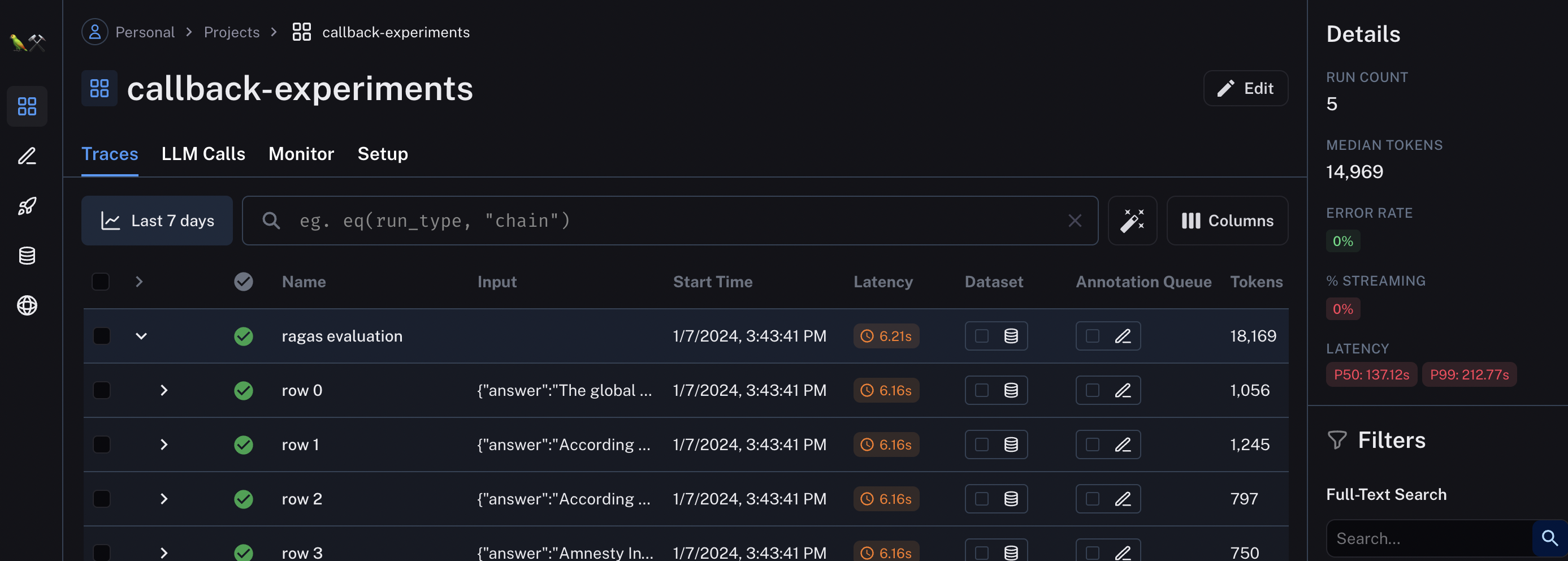Explainability through Logging and tracing¶
Logging and tracing results from llm are important for any language model-based application. This is a tutorial on how to do tracing with Ragas. Ragas provides callbacks functionality which allows you to hook various tracers like Langmsith, wandb, etc easily. In this notebook, I will be using Langmith for tracing
To set up Langsmith, we need to set some environment variables that it needs. For more information, you can refer to the docs
export LANGCHAIN_TRACING_V2=true
export LANGCHAIN_ENDPOINT=https://api.smith.langchain.com
export LANGCHAIN_API_KEY=<your-api-key>
export LANGCHAIN_PROJECT=<your-project> # if not specified, defaults to "default"
Now we have to import the required tracer from langchain, here we are using LangChainTracer but you can similarly use any tracer supported by langchain like WandbTracer
# langsmith
from langchain.callbacks.tracers import LangChainTracer
tracer = LangChainTracer(project_name="callback-experiments")
We now pass the tracer to the callbacks parameter when calling evaluate
from datasets import load_dataset
from ragas.metrics import context_precision
from ragas import evaluate
dataset = load_dataset("explodinggradients/amnesty_qa","english")
evaluate(dataset["train"],metrics=[context_precision],callbacks=[tracer])
{'context_precision': 1.0000}

You can also write your own custom callbacks using langchain’s BaseCallbackHandler, refer here to read more about it.